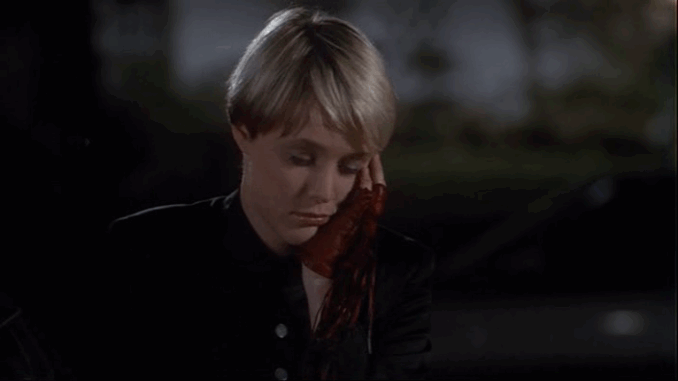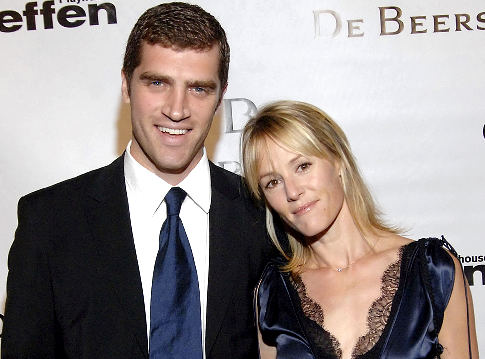
A Scene Often Overlooked
There is a quiet, fleeting moment in Fried Green Tomatoes that carries deep symbolic weight—a baptism in the river. The scene unfolds not with grandeur, but with simplicity: Idgie Threadgoode, still in mourning after her brother Buddy’s death, is led to the riverbank by her family for a religious revival. It’s meant to be a symbolic cleansing of grief, a step toward healing and return.
But what actually occurs is more complex. The river, for Idgie, becomes a site not of spiritual salvation in the traditional sense, but of personal transformation—a rejection of conformity, a moment of rebellion cloaked in ritual. It is the start of her journey away from organized faith and toward her own moral compass.
Faith vs. Wildness
Idgie is not the type to sit still in church. Even before Buddy’s death, she’s already shown her tendency to defy expectations. But in the wake of that trauma, her distrust in religion intensifies. She can’t understand why a God would take her brother away. She can’t tolerate the platitudes people offer in the name of faith. So when her mother takes her to the river to be “saved,” it’s not a moment of comfort—it’s a confrontation.
The gathered community sings hymns, the preacher raises his voice, and the river becomes a stage. When it’s Idgie’s turn, she walks into the water stiffly, as though walking to her own undoing. But then something extraordinary happens: as the preacher lifts his hand and prepares to dunk her under, she pulls away—not with fear, but with fire.
The Rejection of Ritual
Idgie doesn’t scream or cry. She simply refuses. In the middle of the river, surrounded by onlookers, she turns her back on the preacher and walks out of the water. Her dress clings to her frame, her long hair is soaked, and her eyes burn with defiance. It’s an act of heresy in the small town’s eyes, but to Idgie, it’s an awakening.
This single act—simple as it seems—becomes a defining moment of her character. She isn’t rejecting God as much as she’s rejecting a version of faith that offers no answers, no comfort, and no room for wild girls who break the mold. The river, instead of washing her clean in the religious sense, baptizes her into her true self.
A Mother’s Disappointment, A Father’s Silence

As Idgie walks back to shore, her mother looks stricken, her disappointment quiet but crushing. She sees her daughter slipping further from the expectations of Southern womanhood—no pearls, no prayers, no Sunday manners. Her daughter, whom she once hoped to raise into a lady, is becoming something else entirely.
Her father, on the other hand, doesn’t say much. He stands back, eyes unreadable. In this moment, we sense that he understands something the mother doesn’t. Perhaps he sees not rebellion but strength. Perhaps he too knows that the path Idgie is forging is one of survival, not sin.
The River as Rebirth
Though Idgie’s exit from the water isn’t celebrated, it marks the beginning of her life as an outsider. From this point on, she will live differently. She’ll retreat into the woods. She’ll hunt, fish, drink, gamble. She’ll become the Idgie we meet later—witty, brash, and utterly free. The river didn’t cleanse her—it crowned her.
This reimagining of baptism is one of the film’s most powerful subversions. Traditionally, baptism is about conformity—joining the flock, finding salvation in sameness. But for Idgie, the river says: go your own way. Save yourself.
The Community’s Response
In Whistle Stop, rumors fly quickly. Idgie’s refusal to be baptized becomes a topic of gossip and concern. The church mothers pray harder. The reverend makes house visits. People worry about her soul, her behavior, her future. But no one seems to understand that she is more herself now than ever before.
This tension between personal truth and communal pressure will follow Idgie all her life. She’ll always be the “wild one,” the “Threadgoode tomboy,” the one people whisper about with a mix of awe and judgment. But she wears it all like armor, shaped first in a river that did not wash her away.
Ruth’s Later Understanding
Years later, when Ruth comes to Whistle Stop and learns about this moment, she doesn’t scoff or try to change Idgie. She listens. She understands. Ruth, a deeply religious woman herself, doesn’t take offense at Idgie’s irreverence. Instead, she sees its purity. In many ways, Ruth is the first person who sees Idgie’s rejection of religion not as rebellion—but as honesty.
This mutual respect becomes the bedrock of their relationship. Ruth brings tradition, faith, and tenderness. Idgie brings instinct, freedom, and protection. And together, they create a harmony that neither could’ve found alone.
A Symbol Beyond Faith
The river baptism scene isn’t just about religion—it’s about identity. It shows us that spirituality isn’t one-size-fits-all. That sometimes salvation comes not through surrender but through resistance. That rejecting what doesn’t serve us can be its own form of devotion—to truth, to freedom, to self.
For Idgie, that soaked dress and stormy glare are a kind of holy garment. She walks out of the river not clean, but real.
Conclusion: Washed in Her Own Light
The river didn’t save Idgie Threadgoode. It did something better—it revealed her. In a moment meant to mold her into someone she wasn’t, she chose to be unmade and remade on her own terms.
And that’s what makes Idgie one of the most unforgettable characters in Southern cinema. She doesn’t follow the sermon. She writes her own scripture. With dirt under her nails and laughter in her bones, she walks into a world that never asked for someone like her—and makes it hers anyway.
